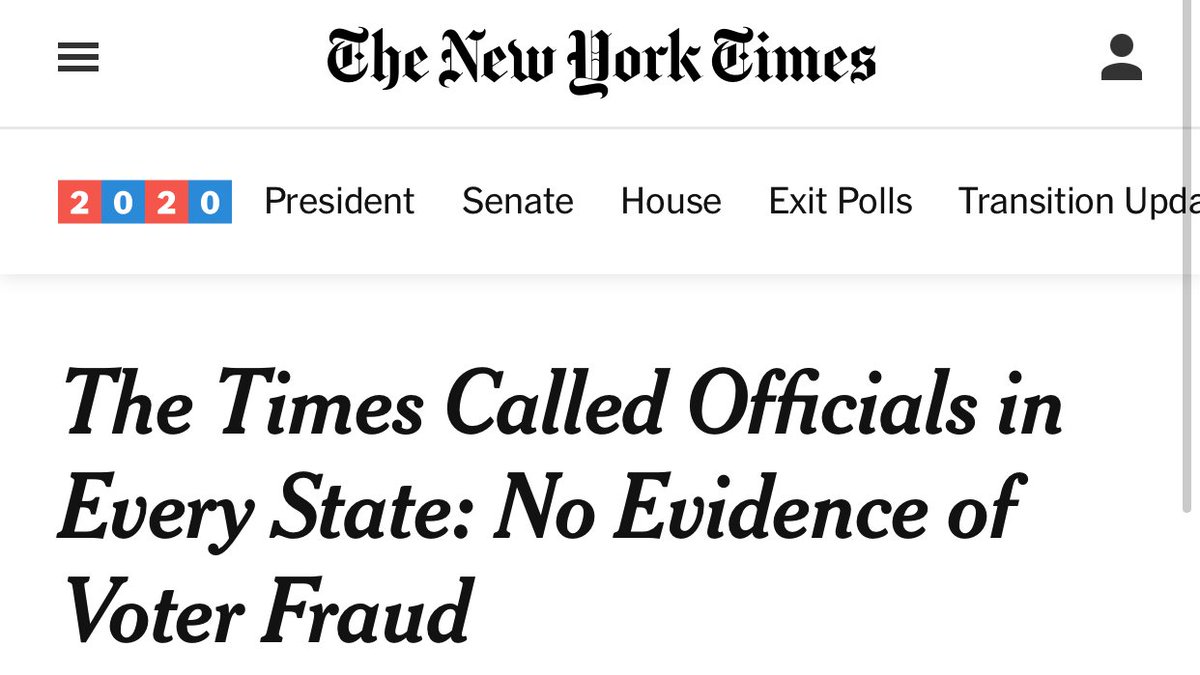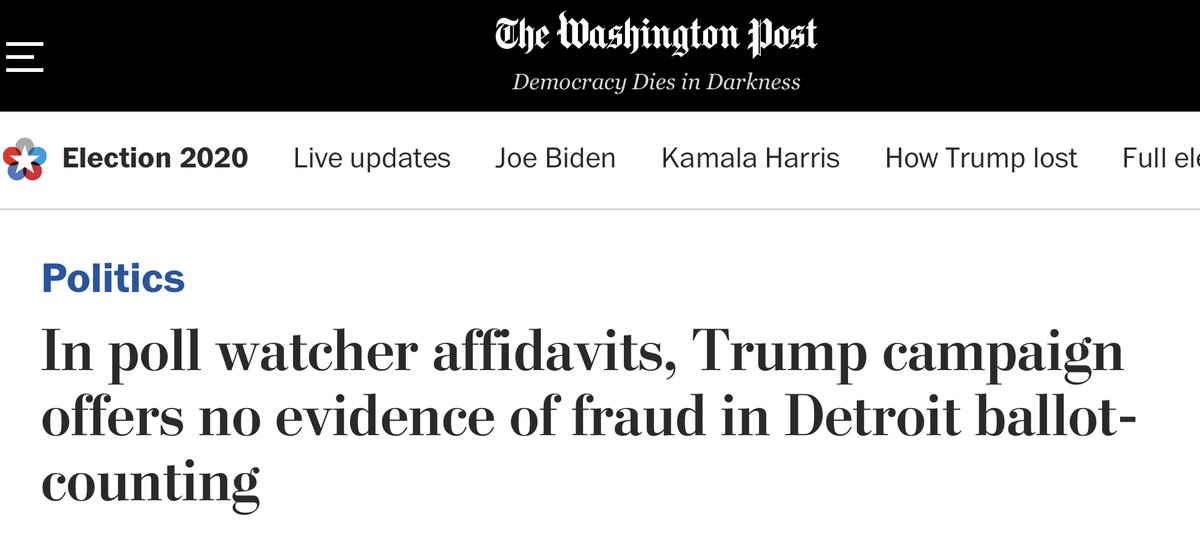In the past week, there have been A LOT of claims about #Election2020  fraud and election-related court cases in different states. We know that constantly being bombarded with these claims can be overwhelming. Here are some tips for managing the noise:
fraud and election-related court cases in different states. We know that constantly being bombarded with these claims can be overwhelming. Here are some tips for managing the noise:
 fraud and election-related court cases in different states. We know that constantly being bombarded with these claims can be overwhelming. Here are some tips for managing the noise:
fraud and election-related court cases in different states. We know that constantly being bombarded with these claims can be overwhelming. Here are some tips for managing the noise:
To be clear, @nytimes reported there's no evidence to support claims of voter fraud as of Nov. 10 in the #2020election. https://www.nytimes.com/2020/11/10/us/politics/voting-fraud.html
We say this a lot, but it's for a good reason! Try asking yourself these three questions developed by @SHEG_Stanford.  Who is behind the information?
Who is behind the information?  What evidence is there?
What evidence is there?  What are other sources saying?
What are other sources saying?
 Who is behind the information?
Who is behind the information?  What evidence is there?
What evidence is there?  What are other sources saying?
What are other sources saying?
If a politician is talking about voter fraud, ask yourself what they have to gain from you spreading this information. Who benefits from undermining our #elections  process and/or #ElectionResults?
process and/or #ElectionResults?
 process and/or #ElectionResults?
process and/or #ElectionResults?
Evaluating the evidence can be tricky for lawsuits. Although @TeamTrump compiled 238 pages of affidavits from poll workers in Michigan, those 238 pages didn’t contain any evidence of fraud. Don’t confuse the volume of claims with supporting evidence. https://www.washingtonpost.com/politics/michigan--poll-watcher-affidavits/2020/11/11/4d073d7a-2447-11eb-a688-5298ad5d580a_story.html
When it comes to claims about ballots and elections, read multiple sources and think LOCAL. Reporters on the ground in the cities and states in question will have the most knowledge of what’s going on.
We know many people are ready to put this election behind them, but political misinformation doesn’t stop on #ElectionDay  . Keep asking yourself these three questions and you’ll be able to avoid misinformation year-round.
. Keep asking yourself these three questions and you’ll be able to avoid misinformation year-round.
 . Keep asking yourself these three questions and you’ll be able to avoid misinformation year-round.
. Keep asking yourself these three questions and you’ll be able to avoid misinformation year-round.

 Read on Twitter
Read on Twitter



